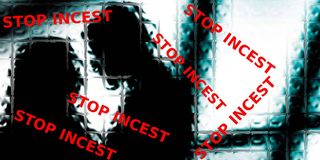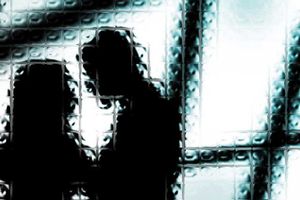
There is no direct assessment to know if a mother may commit incest with her son.
Last week, a woman was arrested for engaging in incestuous acts with her 14-year-old son, news that sparked debate if it is even possible for a mother to have an emotional and sexual attachment towards their child.
Known by psychologists as Jocasta complex, it refers to the incestuous sexual desire of a mother toward her son. Doctors say it is possible, and in most cases, these women never seek help because they do it in secrecy, shame, and deep psychological complexity.
Such relationships, psychologists say, do not happen overnight. They evolve in the shadows—through prolonged physical closeness, emotional dependency, and, in some cases, digital interactions.
"Such relationships stem from dysfunctional families where a child has one parent, particularly of the opposite sex. If the mother lost the father of this child, for instance, and he resembles or acts like the father...the mother can unhealthily bond with the son through grief," says Loice Noo, a child psychologist with Ultimate Carelinks, a clinic in Nairobi.
Drug abuse or mental conditions could also spark an unhealthy relationship.
Ms Noo says the most common sign that a mother's affection for their son is sickly is how they physically touch the child.
"She may be excessively physically touching the child, prolonged hugs, kisses on the lips, and an overpowering need to communicate with the child [which may signal emotional dependency]. This child just has the mother as the only person he has a relationship with. When it is mentioned, one becomes angry," she says.
Single parents
She also cites the Oedipus complex, which happens from about four years old when a boy has an unconscious attraction to his mother. In a normal family, the feelings remain repressed because the mother acts like a parent. If the mother crosses the line, the son also reciprocates the feelings, which he struggles with through teenagehood.
Ms Noo also points to the influence of social media. She says this boundary-crossing behaviour has normalised inappropriate romantic expressions. Nowadays, mothers post romantic messages and inappropriate photos to depict mother-child bond, and others emulate it.
Additionally, the child psychologist raises concerns over a son who shares a bed or bedroom with his mother.
"The child may start sleeping on the mother's bed or bedroom in the name of I can't sleep alone... then one thing leads to another," she says.
Single mothers from broken relationships who are emotionally vulnerable may also turn to their sons to fill an emotional void. Such mothers might also develop possessiveness and control. For instance, she shares that attachment can begin from pregnancy when the mother wants to protect their child jealously, especially if her relationship with the father is sour.
"As the child grows up, the mother has mixed feelings. Such a woman wants the best for the child but also to prove to people that they can parent alone. Soon, the two [mother and son] fail to move beyond the normal Oedipus complex attraction, and it becomes incest," she says.
Guilt, shame and self-stigma
A mother's childhood experience can be a basis for an unhealthy bond with her son. A mother who went through traumatic experiences such as pornography, prostitution, sexual cruelty, or mental illness may do the same to her son.
However, it is not all doom. Ms Noo says a mother and son can seek either spiritual help or therapy. Treatment starts by helping them acknowledge that their relationship is unhealthy.
"They are helped to establish boundaries and to stop it," she says.
In such cases, the child is the most affected, and he becomes aware his relationship is an abomination when he is older.
"First he will feel guilty, shame, and self-stigma, even if it's not stigma from other people. These three things trigger depression, substance abuse, or sexual addiction as he tries to numb the guilt or shame," she says.
What treatment options are available for mother and son?
Hyline Moraa, a mental health psychiatrist with Kamili Mental Health Organisation in Nairobi, says both the mother and son can be helped through behavioural and cognitive therapy.
She says mothers who have relationships with their sons majorly suffer from behavioural issues. This requires behavioural therapy from a psychologist who will help the woman understand the reason behind the behaviour and equip them with skills to overcome it.
The psychiatrist says there is no direct assessment to know if a mother may commit incest with her son.
"It is purely self-reported or people that have observed the behaviour and are concerned, especially about the child," she says.
Additionally, Ms Moraa shares that a child can be hospitalised if his life is endangered.
She adds that identifying unhealthy attachments early will protect the child from turning into a deviant.
A child who is having sexual relations with a parent runs the risk of not being able to control their sexual desire or even establish meaningful romantic relationships.
"When he grows up, he will lean towards older women and even have social anxiety because he thinks people know his behaviour," she says.









